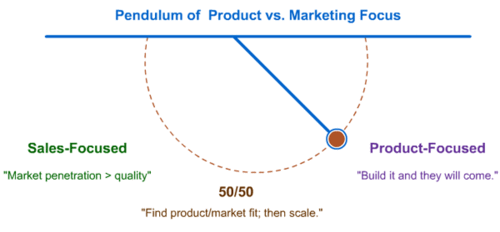The Goodwin Proctor "Founders Toolbox" blog posted an interview with the Gotham Gal yesterday. It's very good. So I'm cross posting it here.
———————
Name, Age, Current Occupation: Joanne Wilson, 49, Blogger, Angel Investor, Mentor and Philanthropist
My start-up path: I started out working as a buyer at Macy’s and then I ran a company in the garment district. While raising my kids as a stay-at-home mom, I started helping friends grow businesses, and I ended up working with Jason Calacanis at the Silicon Alley Reporter. We grew the business from a five-page stapled magazine into a beautiful magazine. I went on to chair MOUSE and then sat on a variety of for-profit and non-profit boards. Seven years ago, I started blogging. Then I became an investor in Lockhart Steele [the visionary behind Curbed], the blogosphere took off and by that point, my kids were older. So, I became an angel investor. I returned to this because I have always liked start-ups, growth and building a company. I enjoy helping entrepreneurs.
I start my day at 7 am and I end my day at all different times.
The biggest challenge of being an investor is: You can give advice, but the company doesn’t always have to take it. Entrepreneurs will ultimately make their own decisions. You have to trust that you put your money behind an entrepreneur that you believe in.
I find that new entrepreneurs struggle the most with understanding: Their valuation. You need to be realistic about your valuation and your potential growth in the company. You have to listen to the market. If you start a business and think it’s genius (as you should) and are totally into it but can’t get anyone to fund you, then maybe you should think about why. The market is telling you something.
My role as an investor in start-ups is: Sitting on the board of directors and acting as a mentor. There’s really no one for a CEO to talk to except for their investors and other CEOs. I like to help people think in the weeds and out of the weeds. It might be giving guidance on who to hire or feedback on whether to spend money on a new campaign.
Any thoughts on why there aren’t more female hackers? Is the gender disparity in start-ups environmental or is it more complicated than that? It’s environmental from the time you come out of the womb. Boys gravitate towards blocks. Girls gravitate to the dolls. That’s a generalization but in general, its true. I look at my own kids – my son, gamer extraordinaire. My daughters used to play those games but then they lost interest. I do think you’ll see more women in programming because of where we are going as a society over the next 10 years or so.
Is New York a better city to start a company for women compared to Silicon Valley and Boston? Content companies in New York are exploding. And content is great for women. There’s a huge support community for women entrepreneurs. We just need to find each other and connect better. I went to a TechStars event and there were 10 women there! We need to not be focused on the fact that there’s not enough women. We just need to celebrate the women that are in the community already.
How will creating a stronger, deeper community of women entrepreneurs impact the overall tech and entrepreneur community? The impact is huge. Tech is a platform. It will seep into our economy, younger children and create better, longer lasting companies. We hope that from theWomen Entrepreneurs Festival there will be conversations and mentorships that come about and that women will see from the different panels all of the opportunities that are out there.
The differences between a female entrepreneur and a male entrepreneur are: An entrepreneur is an idea maker who executes on an idea. Every person, man or woman, has differences. But companies are better off when there’s a balance of genders. Women tend to provide more of a community, an understanding and a softer ear than men. But I know men who provide those same things.
One area where women could improve is: Women don’t stand on a table and say I rule.
The best piece of legal advice I ever received was: Read the document. Just because you have a lawyer, don’t assume that they are doing everything the way that you want.
The one legal concept I didn’t understand at the outset was: At the beginning, I didn’t fully understand post versus pre-valuation and convertible debt. You have to be in it to get it. It’s like anything else – someone can teach it to you, but when you get legal advice, until you actually have to use it, you don’t fully understand it.
Right now, the books I’m reading are: I am a huge reader. I just finished Mr. Peanut by Adam Ross. I just started reading about Keith Richards…what a life that guy had. I have a bunch sitting on my nightstand.
The blogs I’m reading are: I read the blogs of all of the companies I’m involved with.






